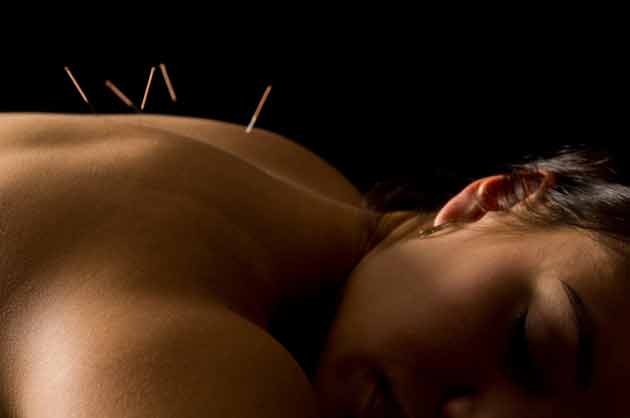Acupuncture is a therapeutic technique of Traditional Chinese Medicine (TCM) for treating disease and/or relieving pain. It is done by gently inserting fine needles into specific points of the body.
The basis for
Acupuncture has been proven in research to have positive effects on both central and peripheral nervous system. There is also evidence supporting an increase in the release of endorphins for pain control, as well as evidence supporting increased stimulation for digestion, circulation and immune function. All of which will allow the body to regain a state of positive health.
- Pain Control: The physical stimulus produced by the acupuncture needle as it is inserted into the human body generates an impulse that travels to the nervous system. In all the nervous system structures, biochemical interactions occur that involve different neurotransmitters and hormones that are involved in pain control. Acupuncture brings about changes in these neurotransmitters and hormones. As a result, acupuncture controls pain without the harmful side-effects of many conventional methods of pain control.
- Anti-Inflammatory: Acupuncture treatments generate the following changes in the cardinal features of inflammation:
- Reduces swelling and redness
- Relief of Pain
- Normalization of local tissue temperature
- Restores physical function - This process is achieved through stimulating both the peripheral and central anti-inflammatory mechanism in the body.
- Normalization of the Autonomic nervous system: The autonomic nervous system function involves the biochemical interaction of two neurotransmitters – norepinephrine and acetylcholine. Specifically, the autonomic nervous system functions to regulate effectors in order to maintain or restore a state of balance in the human body which is essential for health. Acupuncture stimulus brings about changes in the content or turn over rate of the neurotransmitters norepinephrine and acetylcholine as a result normalizing autonomic nervous system dysfunction.
- Regeneration: It has been observed that acupuncture promotes regeneration and healing. EMG studies have shown that acupuncture can enhance recovery from peripheral nerve injuries even when the nerve and muscles are partially disconnected.
- Whiplash
- Low Back Pain
- Tendonitis/Muscle Strains
- Ligament Sprains
- Joint Pain
- Headaches
- Nerve Injuries
- Arthritic Conditions
How Many Acupuncture Treatments Will I Need?
The number of treatments will vary from person to person. Some people experience immediate relief while others may take more time. The frequency of visits varies depending on the type of condition. In general chronic conditions usually take longer to resolve than acute conditions.
How Will I Feel?
During the treatment you may feel energized or deeply relaxed. When the needles are inserted you may feel a sensation of heaviness, tingling or a dull ache. You may also feel the sensation of “Qi” which is the energy sensation spreading from the needles. All of these reactions are a good sign the treatment is working.
How safe is Acupuncture?
Acupuncture is extremely safe. Acupuncture is a drug free therapy that yields no side effects. All needles are sterile, single use and then disposed of properly.
Do the needles hurt and how deep are the needles inserted?
The sensation from the needles varies from patient to patient. Some people feel a little pain when the needle is first inserted, but most feel nothing. The needles are inserted at varying depths ranging from 1/8” to 3” depending on anatomical location.





